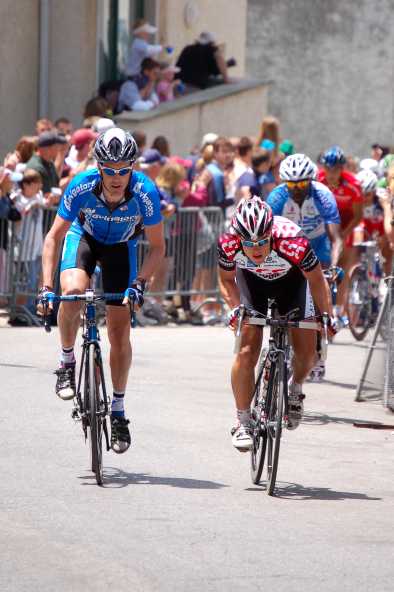
The International Cycling Union (UCI) has recently announced their intention to establish a confidential hotline for “cyclists who want to blow the whistle on fellow riders.” They see this as a good way to clean up the sport of bicycle racing in the wake of the Lance Armstrong doping scandal. As part of their efforts, the UCI ratified the United States Anti-Doping Agency’s decision to strip Armstrong of his seven Tour de France titles and ban him from the sport for life.
To support the idea of establishing a hotline, the UCI issued a lengthy online statement about doping and the effect it has had on the sport and its reputation. Among the things that have tarnished the sport’s reputation is a legal matter involving another doping American cyclist, Floyd Landis, who was found guilty of defaming the UCI by a Swiss court. Landis had accused Pat McQuaid (the head of the UCI) and his predecessor Hein Verbruggen of “concealing cases of doping and taking a bribe from Armstrong for doing so.”
The UCI’s statement also covered other doping-related issues, such as complaints by some riders that the UCI had not followed up on their tip-offs. McQuaid refuted their complaints by pointing out that they had acted on information provided in the past and will continue to do so in the future. He alluded to “the bounds of what is legally feasible” as a possible explanation for why it might have seemed as if they hadn’t followed up on the reports. Some of the things they may have been asked to do could have fallen outside the scope of their authority, from a legal perspective.
As one might expect, the UCI presented themselves as committed to keeping the sport free of doping, going so far as to refer to themselves as “pioneer[s] in the fight against doping.” At times their commentary bordered on the lofty, such as when they wrote the following words, addressed to the riders:
“We pride ourselves on the fact that we were the first sport to introduce a whole range of scientific measures as tools in this fight. These include the haematocrit test, the EPO tests, the homologous blood transfusion test and the blood passport, which I do not need to tell you about, as you are in the front line and have been overwhelmingly supportive of these initiatives. We are aware that this extensive anti-doping program causes much inconvenience for you, and we thank you for having accepted the hassle for the greater good of cycling.
Nevertheless, when we read in the USADA dossier that Lance Armstrong and others were able to use doping throughout their careers, we have to admit that the tests provided by the scientific community were simply not adequate enough to combat the problem.”
This sounds an awful lot like passing the buck. While it is true that cycling’s governing bodies are limited in what they can do by the technology available to them, it is also true that they failed to adequately address the many reports they received about the degree of doping within the sport. And, this widespread doping had been going on for many years before it came to a head with the Lance Armstrong doping scandal — the largest organized doping scheme in cycling history.
The question is: how can the problem of widespread doping be eradicated? Many cyclists have found ways to beat the system. Doctors have been willing to assist them by developing methods which allow them to beat the system. So, in essence, this situation is little more than a race between the illegal drug users and their doctors, and the scientists who design tests to detect their drug use.
Clearly, testing alone isn’t the way to combat the problem. But, is asking riders to rat out the competition any better?
In their statement, the UCI focuses on gaining the trust of the riders to get them to confidentially report their fellow riders. What they don’t adequately address is the problem of false reports. If cyclists can’t use drugs to gain a competitive advantage, isn’t it possible that they might use allegations against competitors to gain a competitive advantage?
Confidential reporting is a double-edged sword. It is a good way to get people to come forward with what they know about others. But, it is also a good way for unscrupulous individuals to harm others without fear of being held accountable.
If the UCI does go forward with its plan to create a hotline, they should give serious consideration to how to hold whistle blowers accountable for their reports. In other words, whistle blowers should not be permitted to report on the activities of other riders under the cloak of anonymity. A requirement like signing a sworn statement could encourage honest reports and discourage baseless claims.
Whatever the UCI decides to do with respect to this hotline, they should focus on implementing a comprehensive anti-doping program, rather than relying on riders to tattle on the competition as a means of cleaning up the sport of cycling.


